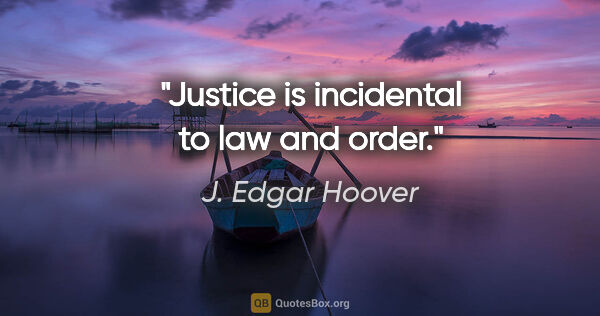Incidental Quotes (page 3)
It was Dostoevsky, once again, who drew from the French Revolution and its seeming hatred of the Church the lesson that "revolution must necessarily begin with atheism." That is absolutely true. But the world had never before known a godlessness as organized, militarized, and tenaciously malevolent as that practiced by Marxism. Within the philosophical system of Marx and Lenin, and at the heart of their psychology, hatred of God is the principal driving force, more fundamental than all their...
Aleksandr Solzhenitsyn
The history of human knowledge has so uninterruptedly shown that to collateral, or incidental, or accidental events we are indebted for the most numerous and most valuable discoveries, that it has at length become necessary, in any prospective view of improvement, to make not only large, but the largest allowances for inventions that shall arise by chance, and quite out of the range of ordinary expectation. It is no longer philosophical to base, upon what has been, a vision of what is to be....
Edgar Allan Poe
Such a captive maiden, having plenty of time to think, soon realizes that her tower, its height and architecture, are like her ego only incidental: that what really keeps her where she is is magic, anonymous and malignant, visited on her from outside and for no reason at all. Having no apparatus except gut fear and female cunning to examine this formless magic, to understand how it works, how to measure its field strength, count its lines of force, she may fall back on superstition, or take...
Thomas Pynchon
The thing is, and here we come to E. Gorey's Great Simple Theory About Art (which he has never tried to communicate to anybody else until now, so prepare for Severe Bafflement), that on the surface they are so obviously those situations that it is very difficult to see that they really are about something else entirely. This is the theory, incidentally, that anything is art, and it's the way I tell, is presumably about some certain thing, but is really always about something else, and it's no...
Edward Gorey
We must know the truth; and we must avoid error,--these are our first and great commandments as would-be knowers; but they are not two ways of stating an identical commandment, they are two separable laws. Although it may indeed happen that when we believe the truth A, we escape as an incidental consequence from believing the falsehood B, it hardly ever happens that by merely disbelieving B we necessarily believe A. We may in escaping B fall into believing other falsehoods, C or D, just as...
William James


